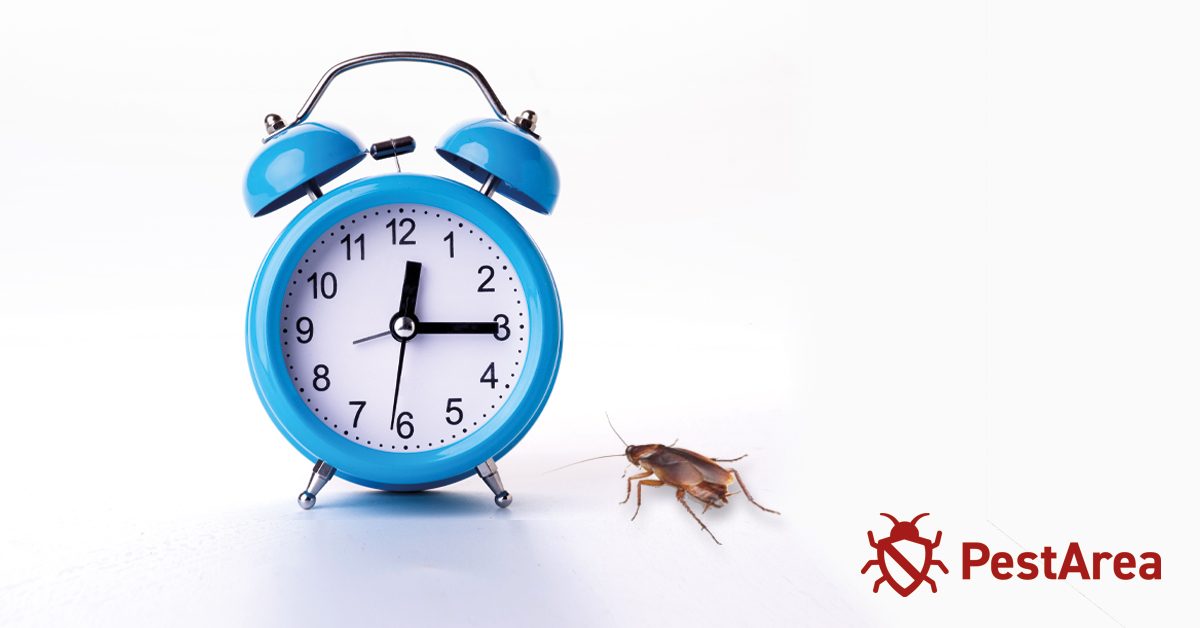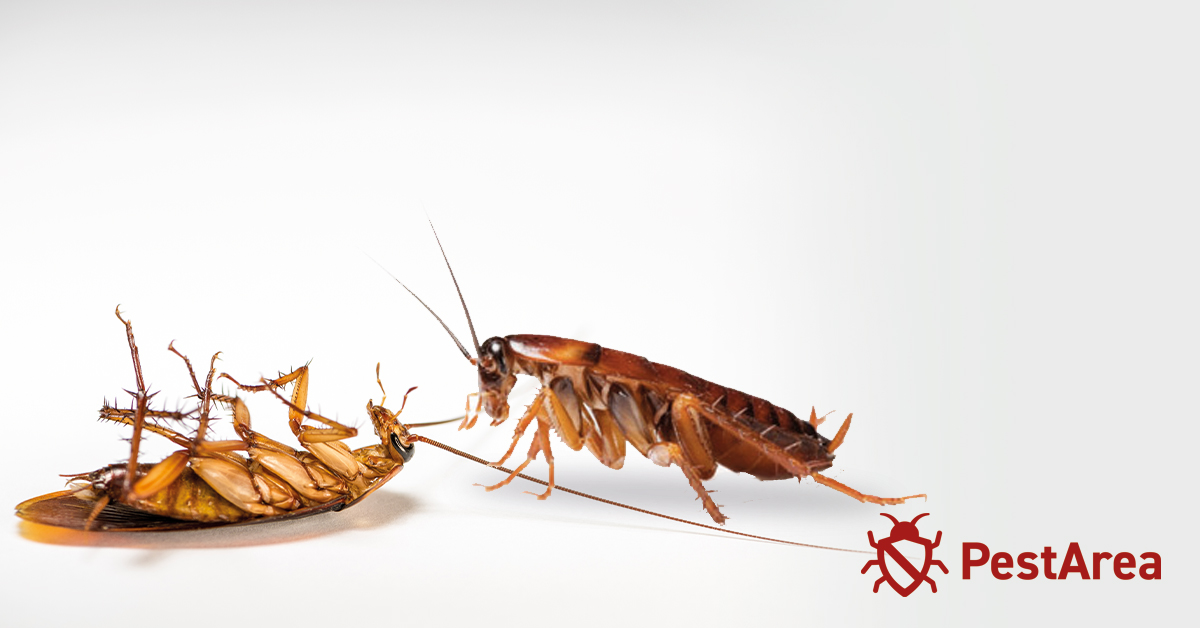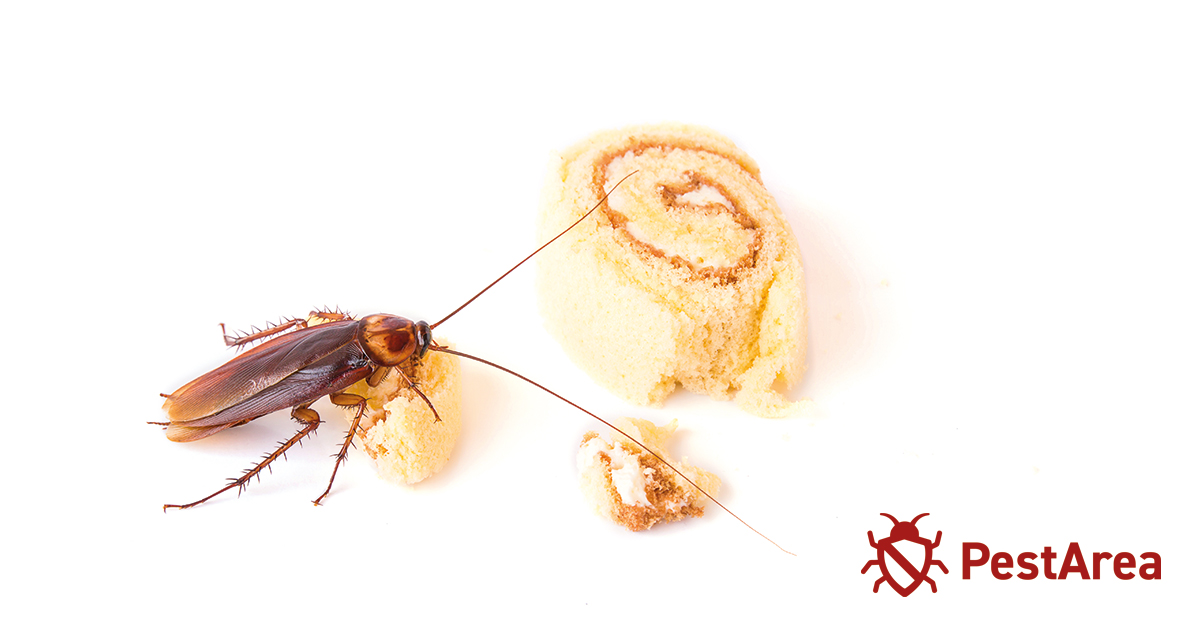 Got an infestation? Get rid of cockroaches quickly, as these pests can live for years and reproduce multiple times in their lifetime. Not only that, but cockroaches can survive the harshest living conditions. No wonder they are expected to be the only survivors of nuclear explosions!
Got an infestation? Get rid of cockroaches quickly, as these pests can live for years and reproduce multiple times in their lifetime. Not only that, but cockroaches can survive the harshest living conditions. No wonder they are expected to be the only survivors of nuclear explosions!
The average lifespan of a roach is about 1.5 years. However, it may vary depending on their breed. A roach mates and lays eggs several times in its lifespan. In fact, these bugs lay several eggs at once. Like every other living being, their lifecycle starts with nymphs, which hatch, molt, and grow into adults.
Want to learn more about the roach’s lifespan? Keep reading this guide till the end and learn some full-proof ways to shorten it.
The Lifespan of a Cockroach From Egg to Adulthood
Roaches grow into adults after passing through different stages. Starting from eggs to nymph-hood, and adulthood, cockroaches spend years on this planet unless you kill them before their natural death.
Here’s a brief description of each phase of a cockroach’s lifespan:
Early Life
Roaches step into life as tiny brown eggs. They’re held inside an ootheca, which is an egg case. One ootheca can hold around 40 eggs at once.
A female roach carries this egg case for around a month or two until the eggs are ready to hatch. When time’s near, the mother roach attaches its ootheca to a well-hidden surface to protect it from predators.
Nymph-hood
After hatching from their shells, roaches begin their lives as babies. In this stage, they’re called nymphs.
Baby roaches go through 5 to 7 stages or instars before they reach adulthood. While growing up, roaches shed their exoskeleton to grow a new one. You can identify molted nymphs as white translucent bugs before they develop a black or brown larger exoskeleton.
This process can occur over varied periods depending on different species.
When roaches reach their young adult stage, they appear quite similar to their parents. Here, they may grow wings if they can have any. Then, they’re ready to join the adult groups and terrorize you.
Adulthood
Adulthood can be tough for roaches, requiring them to do many jobs. In this stage, they can mate and increase their population. Additionally, they spend most of their time exploring new places and navigating for food in sewers, dumpsters, kitchens, and bathrooms.
How Long Can Cockroaches Live?
 Roaches have an average lifespan of around 1.5 years. Under ideal living conditions, these pests can survive for nearly two years.
Roaches have an average lifespan of around 1.5 years. Under ideal living conditions, these pests can survive for nearly two years.
However, this lifespan can vary for different breeds. Let’s explore the most common ones:
American Cockroach
American roaches are among the most commonly found cockroaches. Adult cockroaches can produce around 150 or 160 offspring in their average lifespan of one year. These insects incubate their eggs for 44 days in white egg cases.
Brown-Banded Cockroach
These insects are small roaches that can live up to a year. Adult females can incubate their eggs for around 24 – 36 hours. Then, they may attach their egg cases to safe surfaces and allow them to hatch.
German Cockroach
German cockroaches are a special breed with a relatively shorter lifespan. These bugs are tiny as adults and can live up to five or seven months. Adult female cockroaches can produce around seven to eight egg cases with 30 to 40 roach eggs in each ootheca. With incubation times up to 28 days, these insects can hatch as white nymphs with no wings.
Oriental Cockroach
This cockroach breed is not commonly seen in many homes. However, they can infest your house. These bugs can live up to 110 to 160 days.
Adult oriental roaches can produce up to eight ootheca, with around 16 roach eggs in each case. Thus, on average female adults can give birth to nearly 128 to 130 nymphs during their lifetime. These eggs require incubation for at least 60 days in ideal environments.
Smoky Brown Cockroach
The smoky brown roaches are a larger roach breed that is not much involved in home infestations. They lay mahogany tan-colored eggs which require around 45 days of incubation.
Once hatched, the nymphs can become adults in 320 days and reproduce to lay 20 new eggs in each egg case. These adults can live up to a year. But they can survive for two years under ideal conditions.
How Does an Adult Roach Spend Its Life?
A normal day in a cockroach’s life involves three major jobs. These can include:
Hiding
Cockroaches spend the majority of their life hiding from predators. Full-size adult cockroaches can easily squeeze into tiny cracks and crevices.
These bugs are adept at hiding. Thus, you can have a hard time finding them in your home.
Common hiding spots for the insects include:
- Trash cans
- Cabinets
- Cracked walls
- Leaky pipes
- Cardboard boxes
- Under beds
- Sinks
- Under the dishwasher
Feeding
Besides hiding all day long, roaches can spend much time scavenging food. These insects prefer searching for food at night as the darkness can help them hide well.
The bugs can feed on anything organic. Common food items can include:
- Food crumbs
- Paper
- Hair
- Sweets
- Animal proteins
- Starches
- Fingernails
- Cheese
- Bookbindings
- Fermented foods
- Grease
Reproducing
Roaches are prolific breeders. These insects can mate and reproduce all year and grow their population quickly.
Female cockroaches can lay around eight or even more egg cases in their life, producing a total of nearly 400 offspring.
Do Roaches Affect You in Their Lifetime?
Roach activities can harm you in many ways. They can bring several germs and diseases and make you sick. These insects can spread diseases like diarrhea, typhoid fever, E. Coli, and Salmonella virus.
Here’s how:
They Hide in Filthy Areas
Cockroaches thrive in sewers, dumpsters, and moldy areas. These areas contain several bacteria, fungi, viruses, and protozoans that can attach to their body and spiny legs.
When roaches roam around your home and crawl over your household objects, they transfer these germs to everything in contact.
If you touch these objects, you can easily fall sick.
They Eat Unhygienic Food
Cockroaches can eat almost everything. From dead animals, feces, and decaying food, these bugs can enjoy anything for dinner.
However, they can contaminate our food by vomiting over it. Additionally, they produce saliva while eating food, making it risky for consumption.
They Defecate on Everything
Cockroaches can also spread diseases by dropping fecal matter on your food and everyday objects. These droppings appear like specks of coffee and black pepper.
If you consume roach feces, you may ingest hundreds of harmful germs and parasites.
They Can Trigger Allergies
Roaches can trigger asthma attacks or allergic reactions in many people. They contain proteins that can irritate the nasal passages and sinuses.
The bugs leave their broken body parts, feces, saliva, and eggs shells all around the house. Thus, asthma patients can suffer from frequent attacks.
How Long Can Roaches Survive With Food or Water?
Cockroaches can survive without food for almost a month. Additionally, they can live without water for an entire week.
That’s because cockroaches are cold-blooded creatures. They can maintain their body temperature according to their surroundings. Thus, roaches do not need a lot of energy to produce heat.
However, these insects may suffer from the following issues without food and water:
Weight Loss
As soon as you cut a roach’s access to water and food, it may start shedding its weight. This happens because its cells begin to die rapidly. Additionally, the cell division process or mitosis in its body will be reduced by 50%. Thus, there will be no new cell formation.
Reduced Activity
Roaches can become sluggish Without eating or drinking enough food and water. They can become weak and won’t crawl around your house as much. Thus, you’ll notice very few cockroaches after a few weeks.
Did You Know? Roaches Can Eat Other Roaches
 Humans aren’t the only killers of roaches. Instead, these bugs kill and eat their own family members when they can’t find sufficient food and water. That’s solely to fulfill their nutrition requirements.
Humans aren’t the only killers of roaches. Instead, these bugs kill and eat their own family members when they can’t find sufficient food and water. That’s solely to fulfill their nutrition requirements.
Larger roaches typically eat smaller, weaker, and injured cockroaches to make more space in their nests. They can also eat their unhatched eggs and other dead cockroaches in harsh conditions.
This cannibalistic behavior is not limited to adult roaches. Instead, baby roaches can also eat their siblings to satisfy their hunger if they can’t find food. In severe conditions, these insects can also rely on feeding on their molts and feces.
Can You Starve Roaches To Shorten Their Lifespan?
Practically, you cannot starve cockroaches to death. That’s because these bugs have multiple feeding options for survival.
They have incredible survival skills to search for food and quench their thirst. This is why even after 300 million years, they are thriving on this planet.
To starve roaches to death, you must remove every food crumb, water drop, and garbage bit from your home. Additionally, you must maintain your efforts for a month or more for effective results.
Can Cockroaches Live Longer in Colder Homes?
Cockroaches can not live in colder homes as they thrive in warmer temperatures. Most cockroaches can die when your home reaches sub-zero temperatures.
However, these bugs may not leave your home due to the cold. Instead, they can start living in areas where the environment is warmer. For instance, they can live under appliances like refrigerators. Additionally, they may infest your fireplace.
If you find these insects infesting your furniture, you can put them in your garage to get rid of the pests.
How Can You Reduce the Lifespan of Roaches?
 You can kill roaches before their natural death by using a few effective methods. These can include:
You can kill roaches before their natural death by using a few effective methods. These can include:
Cleaning
Cleaning and sanitizing your home can help you reduce favorable living conditions for cockroaches. For this purpose, you can:
- Vacuum your carpets
- Discard old roach-infested card boxes
- Clean cabinets, drawers, and cupboards
- Scrub surfaces
- Clean areas under the sink
- Sanitize trash cans
- Remove roach eggs and dead bodies
Additionally, you should reduce food and water sources for the bugs. You can do this by removing food crumbs and fixing leaky pipes.
Sealing Entry Points
Roaches can enter your home from tiny cracks and crevices in walls and pipes. Thus, you should seal these roach enter points to avoid more insects infesting your house.
Using Roach Baits
Bait stations or gel baits can be useful weapons to kill roaches. They lure roaches with food. Once the roaches consume the bait, they get poisoned and die.
Applying Roach Traps
You can also use roach traps, including sticky traps, roach motels, and insect monitors, to capture the bugs. They are set up with food scents to attract roaches. They can be effective in eliminating insects overnight. However, you must be patient if you have a serious infestation.
Sprinkling Roach Dust
Insecticidal dust like boric acid or diatomaceous earth (DE) can come in handy for removing roaches in your home. The dust clings to the bug’s exoskeleton and can damage the nervous system. As a result, cockroaches may die within a few days.
Spraying IGR
You can use the Insect Growth Regulator (IGR) to prevent roach nymphs from developing properly. The treatment can also be effective in keeping cockroach eggs from hatching.
FAQs
What Is a Roach’s Lifespan Without Food and Water?
Roaches can live for around 50 days or more without access to food and water. However, a single cockroach can live around 20 or 30 weeks under ideal living conditions.
How Long Does a Trapped Cockroach Live?
A trapped cockroach can live for up to 3 or 5 days. That’s because trapping the bug in an airtight plastic bag can suffocate the roach to death.
Conclusion
Cockroaches can have an average lifespan of a month to around a year. However, this lifetime can vary for different roach breeds. They can also live longer under ideal environments.
Typically, a roach lifespan involves the following stages:
- Egg stage
- Nymph-hood
- Adulthood
During their lifespan, cockroaches spend most of their time hiding, feeding, mating, and reproducing.
